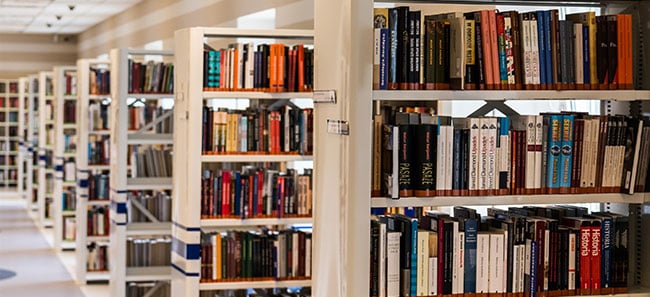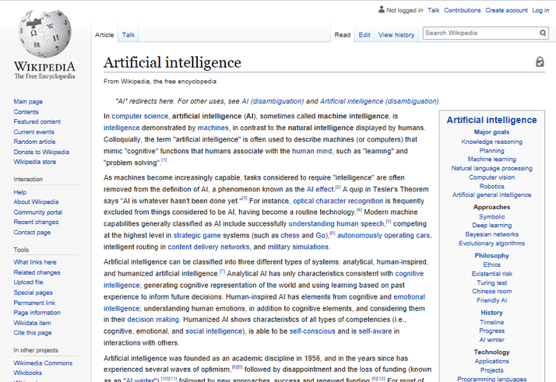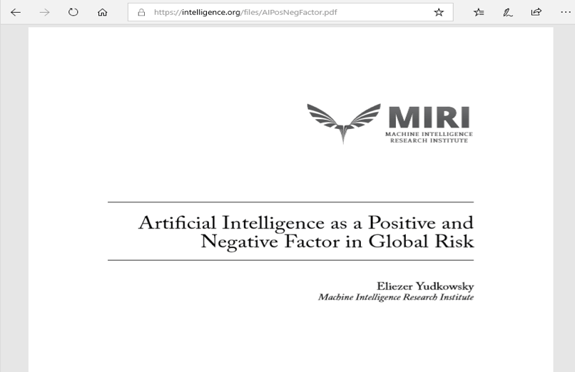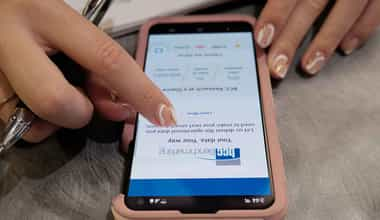
Jul 12, 2019
Blog Academic Institutions Student’s Guide to Evaluating Sources
As you are diving deep into research for an internship, thesis or capstone, finding credible sources may be challenging. Inaccurate, outdated or questionable sources can make the writer look unprofessional and lead to suspicion within the reader.
Referring to unreliable sources makes your work less powerful. Knowing how to judge sources is important for finding the most current and relevant information. Evaluating sources is an important skill that will not only improve your writing but benefit you for the rest of your academic and professional career.
Where do I start if I’m just beginning my research?
At the beginning of your research project, you will need to conduct preliminary or background information to gather insight on your topic.
If you are just researching background information, it’s okay to refer to popular sources such as Wikipedia¬—but do not cite it as a legitimate source. Double-check the facts from Wikipedia since this site allows multiple users to edit information. Click on the links and references at the bottom of the page for more ideas on your topic.
To narrow down your research even more, use the keyboard key “Ctrl +F” to look for specific words in an article or another resource to go to sections of the piece that are relevant to you.
You could also try Google Advanced Search, which allows you to narrow your search results with specific words, sites or phrases.
To use Google Advanced Search, do the following:
Additional sources for preliminary research include:
What Qualifies as a Credible Online Source?
When you have completed background research and transition to academic research, it’s important to critique sources to ensure their credibility using the following criteria:
Preliminary Research Source

Wikipedia is an example of a source that you shouldn’t rely on in the context of academic research because it does not meet the criteria outlined above. However, Wikipedia is a good source for background research because it provides a substantial amount of information if you are just beginning your project.
Scholarly Research Source

This is an example of a reliable source that meets the criteria of an academic resource. It has a credible URL domain, clear author, publisher, relevant topic and a direct purpose.
How to Find Scholarly Research
Research databases provide accurate, up-to-date published sources and reliable information that has been reviewed by experts.
In research databases, you will find articles from scholarly magazines, primary documents, encyclopedias, literary criticisms and much more. You can usually access databases from your school’s library. If you’re not using the library, conduct a Google search using the phrase “Frequently Used Databases for Students.” Keep in mind that some databases may require you to enter your school library card number or school email and password.
List of Commonly Used Databases
What if I want to use a Book or another Written Source?
Books are a great way to find credible, accurate and detailed information.
First, search your school’s library catalogue or ask your academic librarian to help you find reliable books on your topic. Using your school library is the easiest way to find reliable sources because librarians almost exclusively source scholarly, academic sources.
You can also use Google Books and OneSearch to search for books related to your topic. Search keywords related to your topic and click on any relevant literature comes up. Be sure to use the criteria listed above to determine the credibility of your sources. Additionally, review the foreword, preface, introduction and back cover to determine the reliability of the book.

Daniella is our Academic Insights Strategist and a current senior at Bates College. She writes about challenges facing college students and tangible ways students can thrive in their academic and professional lives.

Do you ever struggle with what to say to a professor in an email? Writing an ema...

At this time of year, many of you are reviewing your budget and analyzing your m...

Happy Summer to our academic librarian audience! I hope you get to enjoy a bit o...

We are your trusted research partner, providing actionable insights and custom consulting across life sciences, advanced materials, and technology. Allow BCC Research to nurture your smartest business decisions today, tomorrow, and beyond.
Contact UsBCC Research provides objective, unbiased measurement and assessment of market opportunities with detailed market research reports. Our experienced industry analysts assess growth opportunities, market sizing, technologies, applications, supply chains and companies with the singular goal of helping you make informed business decisions, free of noise and hype.